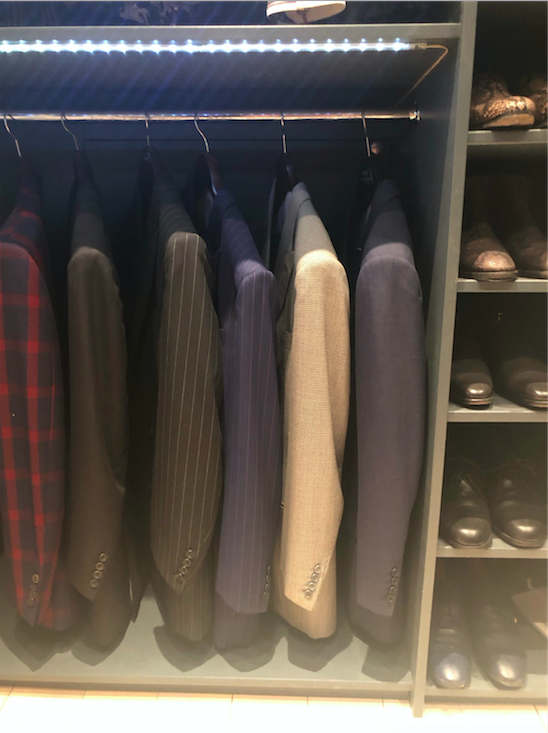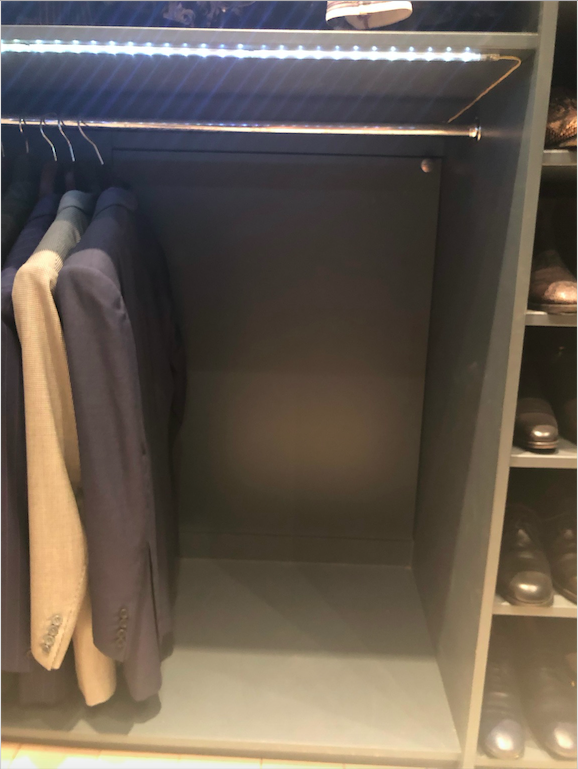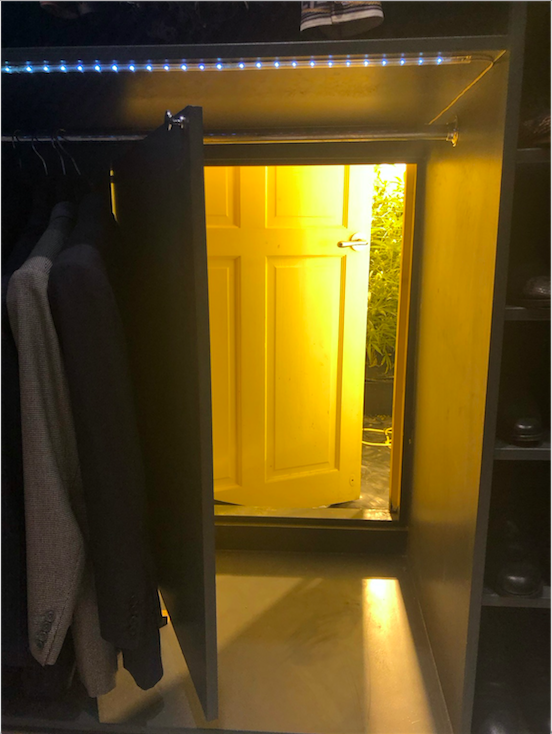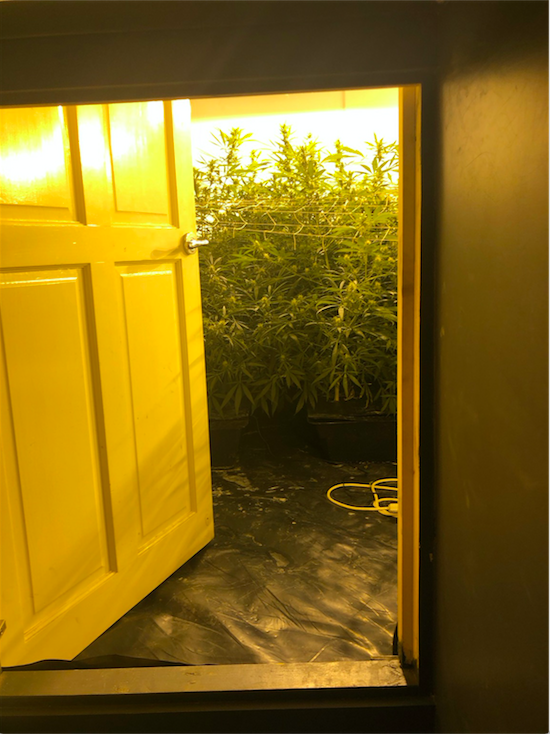Hidden in a North London Home Is This Secret Weed Narnia
Credit to Author: Jenny Valentish| Date: Wed, 20 Mar 2019 12:59:56 +0000
On a well-off suburban north London street, where property prices scrape £1 million, there’s a three-storey house that looks every bit the middle class family home. But all is not what it seems: one of these buildings hides a secret family-run cannabis farm that has been harvesting top-grade weed for nearly two decades.
Mani – the homeowner – has invited me in to have a look. In his “spare room”, he directs me towards an innocuous-looking wardrobe. Opening the door, I see strip lighting and, unsurprisingly, a load of clothes and shoes.

Mani slides aside a line of shirts on the rail, revealing a back panel.

He slides the back panel across to the left, which reveals a door. We step through into the wardrobe and open the door.

Revealing a gentle glow of green.

And a sea of healthy adult plants.

Since his first forays into growing in the early-2000s, Mani has evolved from cultivating for personal use to what he calls a “boutique business” – but what London police would regard as a highly illegal suburban cannabis farm. The business is set up across three sites; as well as the room in his house, he has two more rooms above each of his two dry-cleaning businesses. Each room turns over around 80 plants at a time, and in total brings in £200,000 a year – if there are no hitches – 75 percent of which is profit.
It’s the room behind the wardrobe in his house that Mani’s proudest of. In 2011, he knocked two bedrooms together, building a 10 x 2.5m space. “I’ve always had ideas from a young age of having secret doors to parts of the house,” he says. The rooms were built with a trusted carpenter friend, who was particularly helpful with the air conditioner and plumbing. Air comes in fresh through a disguised hole in the wall and exits through the house’s chimneys, via a charcoal filter to remove the smell.
The hydroponic lights run on a metre with an old-fashioned key card that Mani pays cash for at the newsagent, even though he suspects that a large electricity bill arousing suspicion is probably an urban myth. “An electricity company only really cares if you’re stealing the electricity,” he reckons. “You’d have to have an astronomically large bill for it to be considered worth reporting.”
Then it was just a question of fixing the outer walls so that nothing looked amiss from the hall and the functional bedroom. “We took out the doors and plastered the whole thing. Only one or two people have spotted something’s not quite right – ‘Shouldn’t there be something here?’ sort of thing. I just play it off as a sex dungeon and they stop asking questions.”
The only décor in the plant room is a large framed photo of Mani’s most recent ex-girlfriend, who’s pictured tending the crop. Call it an insurance policy: “At the time I played it as a lovely cherished moment of our time together,” he says, “but we both knew what it was really about. It wasn’t foolproof, but it seems to have worked. She’s now in a relationship with someone else and they’ve had a kid, so I’m not expecting any trouble.”
This custom-built room is on a middle floor because Mani had heard that police helicopters are on the lookout for signs of heat from hydroponic lights. However, by the time he came to build the rooms above his shops he’d figured out helicopter searches might be another urban myth; either way, budget cuts have forced the National Police Air Service to close half their bases since launching in 2012. “Anyway, normal tiling and insulation will stop them seeing inside,” he says.
Of course, it’s impossible to custom-build such a room without a few people knowing. Mani’s daughter Ashley is one. She’s known about the room in the house since she was five. Now 18, she says: “I’ve never really cared. It feels normal to me, just helping out my dad for extra money in the house. It’s not like we’re cooking up meth or anything.” Mani says Ashley was “brought up knowing that this is something she can’t talk about and that she’s just as dependent on it as I am”.
In any case, off the back of his cannabis business Ashley has “gone to private school with the sons and daughters of Russian oligarchs, hence it’s probably quite tame to what her friend’s parents have done or will do”. Ashley’s mum also knows, and despite her at-times difficult relationship with Mani has kept schtum because the harvest pays for Ashley’s school fees. “When I suffered a heart attack last year it was my daughter and her mum who took care of all three rooms when I was in hospital,” Mani says. Other than that, a few people come in to help him harvest. They cut down the plants, trim excess leaves, dry them and bag them. Mani deals with just one “purchaser”, and doesn’t involve himself from that point onwards.
With the UK inching towards legalisation, Mani’s started visiting shops in Amsterdam and California, and talked to them about their process of applying for licenses and permits. If and when weed becomes legal for recreational use, he’d look at opening his own shop in London. “I’d buy from the pharmaceutical companies and then also slip my stuff in there, which would be double the profits for me and be a legitimate growing business as well,” he says, adding that going legit would take away some of the thrill. “Even the creeping decriminalisation kind of hurts me as well, deep down inside,” he says.
Mani sees cannabis production as a victimless crime, and hopes he’d be spared a jail sentence if he’s ever caught. He says the cannabis farming boom in Britain since 2005 – which, at its height, saw police busting 20 cannabis farms a day – left him largely unaffected: “The boom pleased me, actually. The police suddenly had many moving targets and I was more careful than all those amateurs, so I never got caught.” The biggest risk to Mani’s set-up is burglary, hence his massive home-security system of cameras, alarms and bullet-proof windows.
Despite the fact his business is likely to remain illegal for a while yet in the UK, Mani has no plans to wind it down. He’s enjoying himself far too much. “I do get a kick out of the fact that this is going on in a normal suburban street, but then I also look at every other house and wonder: ‘What’s going on in there?'”
This article originally appeared on VICE UK.